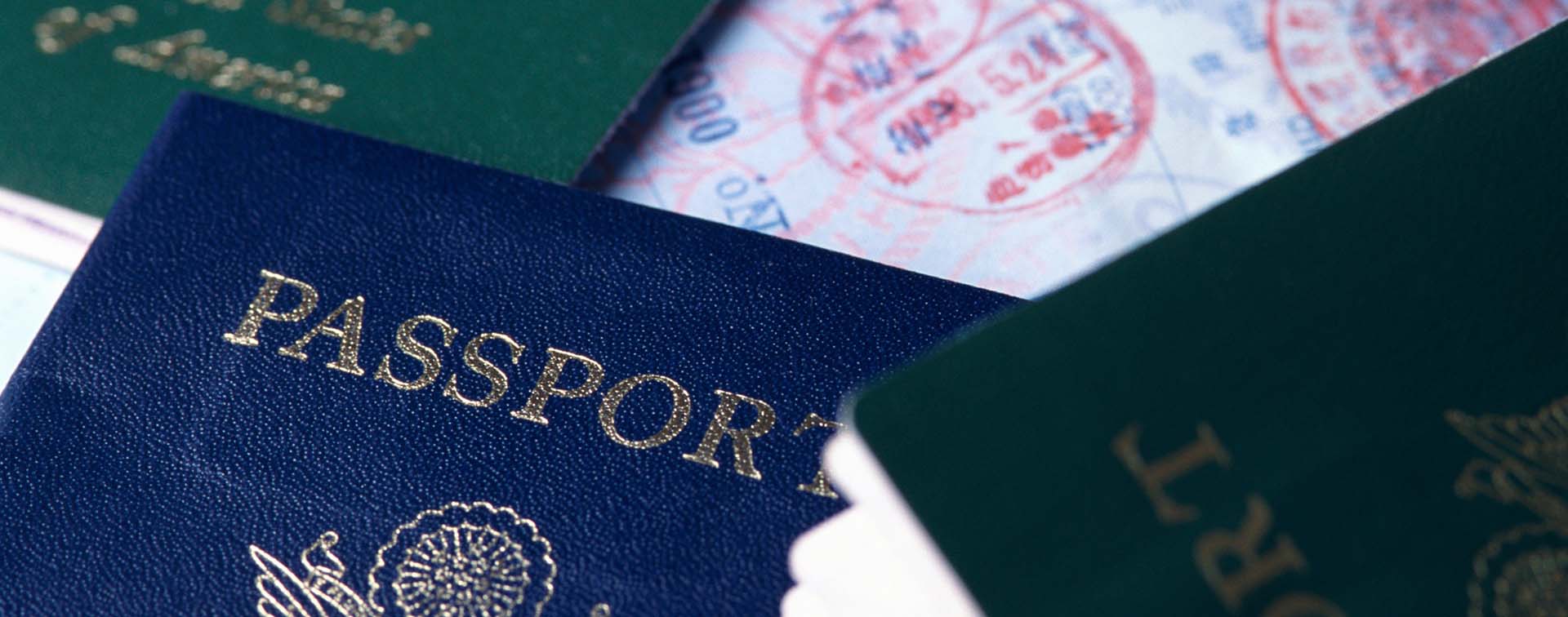
Prof. Dr. Yossi Harpaz is Associate Professor of Sociology at Tel Aviv University.
Citizenship is the key status that determines an individual’s position within a highly unequal global system. Those born with the ‘right’ citizenship — such as Canadian or Swedish — gain access to a formidable package of opportunities, rights, and security that is nearly unimaginable to those born with, for instance, Somali or Syrian citizenship. We can conceive of a global hierarchy of citizenship value where countries are ranked by the ‘package’ of rights, economic opportunities, security, and travel freedom their citizenship provides. The top place in this hierarchy is reserved for citizens of developed democracies, mostly concentrated in the EU and North America.1
A key component in the value of citizenship from the EU and other Western countries is the extensive set of global mobility rights provided by their passports. For example, citizenship from Spain offers a package of rights that includes visa-free access to Canada and the USA, as well as the unrestricted right to settle and work in EU countries such as Germany or Sweden. Travel and settlement freedom have become particularly valuable in today’s globalized world, where the ability to cross international borders plays a key role in determining individuals’ economic opportunities, consumption habits, social status, and sometimes personal safety.2

We can view citizenship, then, as a sorting system that allocates individuals into highly unequal slots within a global matrix of states and citizens. For most of the 20th century, this sorting system did not tolerate overlaps: countries demanded exclusive allegiance from their citizens and typically did not permit multiple citizenships. In 1990, only about a quarter of countries in Europe and the Americas permitted dual nationality. Soon thereafter, legal norms began to change rapidly. By 2016, over three-quarters of European and American countries permitted it. Today, the acceptance of multiple citizenship has become the norm among developed democracies.3
The growing legal acceptance of dual citizenship may initially appear as a minor, technical change, affecting specific categories of individuals (above all, immigrants and their children). In fact, the acceptance of non-exclusive citizenship may change the basic ways in which states and individuals approach national membership. An increasing number of countries now extend citizenship to populations that live outside their territory but are perceived as having some value to the nation or the government, whether economic, political or symbolic. A common choice is offering dual citizenship to co-ethnics abroad. For example, Hungary offers citizenship to Hungarian-speaking minorities in neighboring countries, thereby staking a claim on populations and territories that were Hungarian until 1918, while also providing an electoral boost to the Orbán government. Other European countries that offer citizenship to cross-border co-ethnics or the second or third descendants of emigrants include Bulgaria, Italy, Portugal, Romania, and Spain.4
In the context of this new freedom to devise multiple citizenship policies, many countries have created programs that attract foreign investors in exchange for visas or citizenship. Countries such as Antigua and Barbuda, Egypt, and Türkiye offer an outright exchange of money for citizenship, at rates ranging from around USD 100,000 to over USD 400,000. Other countries — including Australia, Spain, and the USA — offer investor visas, which provide a residence visa in exchange for a hefty investment. These programs explicitly appeal to wealthy foreigners in an attempt to fill the host country’s coffers.5
Indeed, millionaires — or, as we shall call them here, high-net-worth individuals — tend to be highly conscious of the hierarchy of citizenship and are readily willing to pursue their utility within this system. Dual citizenship may provide these individuals with enhanced travel freedom, improving market access and opportunities, while also providing an insurance policy, offering a safe haven in times of political or economic turmoil.
Several recent studies have explored the mobility strategies of wealthy individuals who acquire visas or citizenship by investment.6 Another perspective is provided by recent statistics on high-net-worth-individual mobility, collected by New World Wealth. The countries that have lost the most high-net-worth individuals include China, the UK, and India, as well as South Korea, Russia, Brazil, South Africa Taiwan, Vietnam, and Nigeria. This list is dominated by developing countries with lower citizenship value, which cannot provide their citizens with full personal security and freedom. The three developed democracies on the list, the UK, South Korea, and Taiwan, are marked by heightened geopolitical risk and economic uncertainty.
Meanwhile, countries that have gained high-net-worth individuals include the UAE, the USA, Singapore, Canada, Australia, Italy, Switzerland, Greece, Portugal, and Japan. These “millionaire gainers” are for the most part developed democracies that offer a secure and comfortable life. The two non-democracies on the list, Singapore and the UAE, are renowned for their stability and solid economic growth. Crucially, most of these countries offer immigration and citizenship programs that allow wealthy immigrants to easily establish themselves. Nine of the ten countries listed as top destinations for high-net-worth individual migration have investor citizenship or investor visa programs providing easy access for wealthy individuals.
In a recent paper, I analyzed the conditions that drive millionaires to acquire investor visas in the USA. My findings revealed that the most significant push factor for elite emigration was democratic decline, which presents a risk not only to millionaires’ political rights, but also to the safety of their person, families, and property.7 Therefore, in a world of unequal yet flexible citizenship, investor visas and citizenship by investment programs provide a measure of security for wealthy individuals in unstable and less developed countries.
In conclusion, the strategic use of dual citizenship reflects broader trends in global mobility and inequality. As countries and individuals continue to navigate these dynamics, dual citizenship will remain a crucial tool for those seeking to optimize their personal and financial security in an unpredictable world. The rise of dual citizenship is not just a legal or demographic trend but a significant element of contemporary global strategy, particularly for the world’s wealthiest individuals.
Notes and printed references
1 Harpaz, Yossi. 2019. Citizenship 2.0: Dual Nationality as a Global Asset. Princeton, NJ: Princeton University Press; Shachar, Ayelet. 2007. ‘The worth of citizenship in an unequal world.’ Theoretical Inquiries in Law 8(2): 367–388.
2 Kochenov, Dimitry. 2019. Citizenship. Cambridge, MA: MIT Press.
3 Harpaz, Yossi. 2019. Citizenship 2.0: Dual Nationality as a Global Asset. Princeton, NJ: Princeton University Press; Vink, M., Schakel, A. H., Reichel, D., Luk, N. C., & de Groot, G. R. 2019. The international diffusion of expatriate dual citizenship. Migration Studies, 7(3), 362–383.
4 Joppke, Christian. 2019. The instrumental turn of citizenship. Journal of Ethnic and Migration Studies, 45(6), 858–878; Dumbrava, Costica. 2019. The ethno-demographic impact of co-ethnic citizenship in Central and Eastern Europe, Journal of Ethnic and Migration Studies 45(6), 958–974; Harpaz, Yossi. 2019. Citizenship 2.0: Dual Nationality as a Global Asset. Princeton, NJ: Princeton University Press.
5 Surak, Kristin. 2023. The golden passport: Global mobility for millionaires. Harvard University Press.
6 Abrahamian, Atossa Araxia. 2015. The cosmopolites: The coming of the global citizen. New York: Columbia Global Reports; Surak, Kristin. 2023. The golden passport: Global mobility for millionaires. Harvard University Press; Harpaz, Yossi. 2022. ‘One foot on shore: An analysis of global millionaires’ demand for US investor visas.’ The British Journal of Sociology 73(3): 554–570.
7 Harpaz, Yossi. 2022. ‘One foot on shore: An analysis of global millionaires’ demand for US investor visas.’ The British Journal of Sociology 73(3): 554–570.